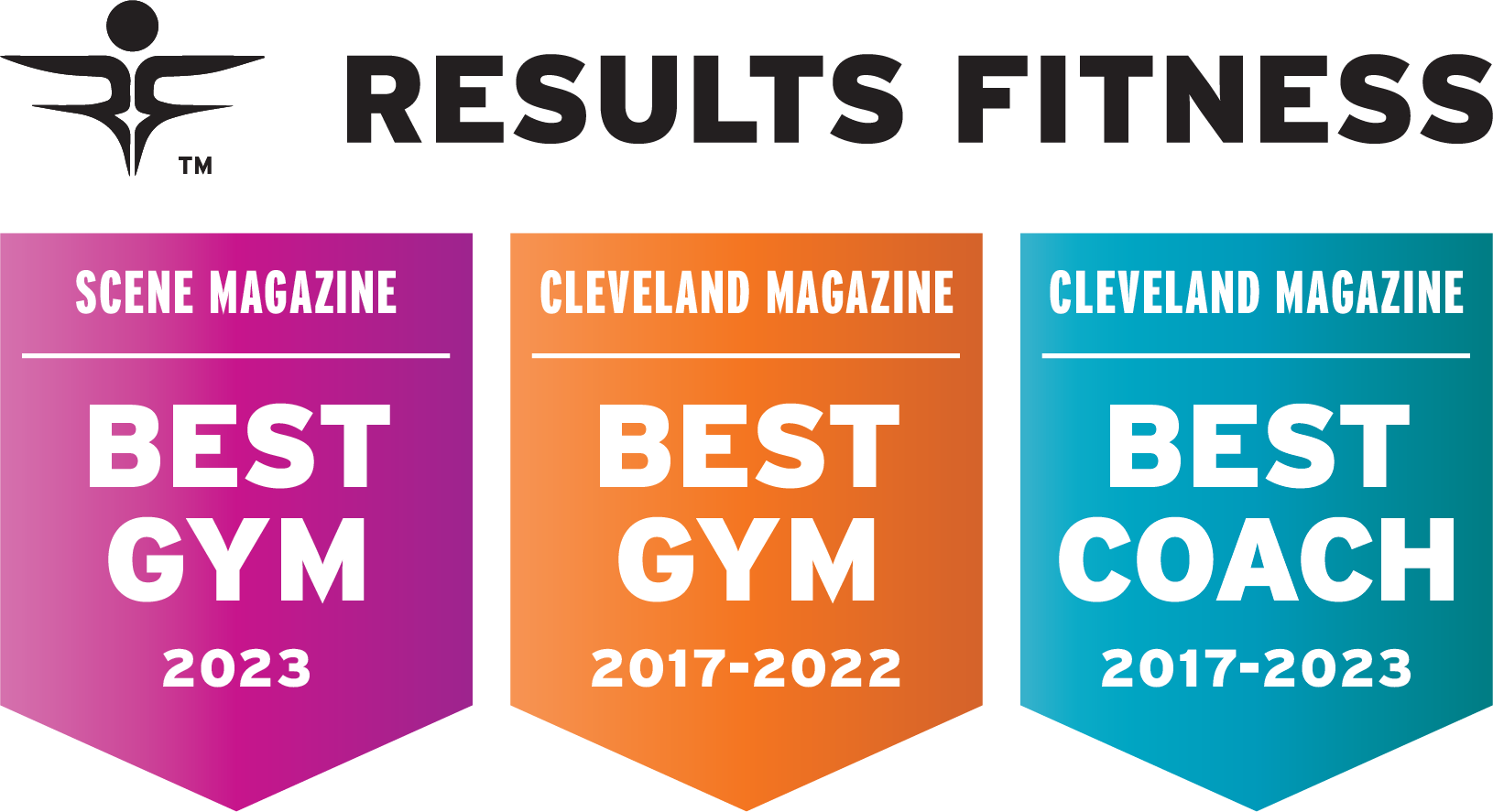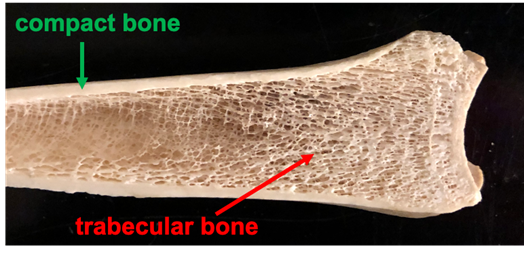Build Strong, Resilient Bones at Any Age!
‘NO BONES’ ABOUT IT!
You all know exercising does a body good!
As coaches, it is our job to not only educate you on all these amazing benefits but also to work with you so you can experience these life-changing benefits forever!
At Results Fitness, we undeniably eat, sleep, preach, and love strength training (lifting weights).
This particular form of exercise is the ultimate form of optimal health, strength, happiness, and longevity!
Now, when you think about the benefit of lifting weights, what comes to mind?
Maybe you enjoy the physical benefits: being stronger, seeing muscle definition / ‘tone’, clothes fitting better and feeling super confident when looking in the mirror!
Or perhaps it’s more ‘internal’: lower blood pressure, cholesterol, stress, and improved heart health!
Believe it or not, one of the most underrated benefits of strength training is improving bone health and bone density!
Too often, this particularly important benefit gets overlooked since it is not visible to the eye and often misunderstood.
So, what is good bone health?
Why should you care, and what can you do to improve it?
In this blog you are learning all about bone health so that you can build healthy, strong resilient bones, stay mobile with age and continue doing all the things you enjoy with the people you love!
In today’s blog, you are learning:
Why bone health matters
How to improve bone health at any age!
Lifestyle habits affecting your bone health
WHY BONE HEALTH = IMPORTANT!
Did you know there are 206 bones in the human adult body?!
Each and every one of those bones play a crucial role in protecting internal organs, moving and providing support for the body, storing minerals and making blood!
There are 2 different kinds of bones:
Compact Bone: what you think of when thinking of a bone: hard, white, sturdy external layer on the bone.
Trabecular Bone: the internal portion of the bone known as the spongy or trabecular bone.
As you grow up and get taller, your bones grow with you! This is exactly what happened when you hit that growth spurt as a youngin!
Having good bone health means your bones can properly and efficiently perform all the functions necessary to keep your body moving.
One way to measure bone health is a bone density scan. Bone density, or bone mineral density, is the amount of bone mineral in the bone tissue.
As your body is put under different stressors over time, your bones become thicker and stronger, therefore increasing bone density and bone strength - yay!
Compact bone grows thicker walls while spongy bone creates thicker, more intricate lace patterns perfect for added stability and tensile strength.
Now, bone size usually caps around the late teens/early twenties and bone density reaches its peak in your mid-20s.
However, while your bones may stop growing, that does NOT mean your bones stop changing and adapting to your lifestyle.
Maintaining good bone health and density doesn’t happen by chance - you need to be doing certain types of exercise to guarantee your bones remain healthy, resilient and strong as you age!
And, this isn’t something ya wanna delay untill you get ‘older’.
The more you do now, the better your life will be!
Strong bones and good bone density guarantee you can continue living indecently and being mobile at every age, are less likely to suffer major injuries from a fall, can ‘bounce back’ faster post-surgery, stay active with kids and grandkids and function in daily life pushing mowers, strollers, grocery carts, carrying shopping bags, walking your dog, etc.
Here’s how bone health can decline and become an issue… if you let it:
Starting as early as your 30’s, bone density starts decreasing IF you are not consistently strength training, like in our Small Group Personal Training sessions or doing high impact exercises.
This is NOT good!
Think of it like a “use it or lose it” situation, because that is exactly what it is!
This bone loss left unchecked eventually leads to increased risk of falling, broken bones, fragile bones, osteoporosis, osteopenia ---- all of which contributes to a decline in your health, quality of life, limited mobility, and ability to recover/heal from falls.
Without strong bones, it will be hard to get up and out of bed, stand up, pick up or play with your kids/grandkids, push the grocery cart, carry laundry, walk your dog.
Now, I know what you may be thinking/wondering: “If bone density peaks in your 20’s, why does it matter now that I’m 55?”
Such a great question!
Even though bone density may peak early on, this does not mean it is too late to do everything you can to ensure your bones stay as strong and healthy as possible!
The same way that it is never too late to start exercising, it is never too late to strengthen your bones as well! Regardless of age or ability, you can still grow and develop bone tissue.
The sooner you start the better, and now is better than never!
TIPS TO IMPROVE BONE HEALTH
There are TWO fool-proof, guaranteed ways to increase your bone density, bone strength and overall bone health!
#1. Strength Training: All exercise is not created equal - keep reading to find out why:
At Results Fitness, we offer Small Group Personal Training (SGPT): strength training and resistance-based workouts.
SGPT sessions are specifically programmed to use ‘heavier weights’ so that you can, over time, keep increasing weights for a given exercise and rep range while taking ample rest breaks.
This is known as progressive overload, and the key is being personally coached based on your fitness level so that you can safely perform exercises to avoid injury while still maximizing strength and building lean muscle mass - aka strong bones!
To truly improve bone density, you MUST strength train!
Lemme repeat – you must consistently strength training to improve bone density, health and strength!
Here is what happens when you strength train:
The spongy bone reacts to the moderate to heavy weights you are using over time by strengthening those web looking connections within the bone itself. Moderate to heavy weightlifting would be doing anywhere from about 5-15 reps of a given exercise.
The heavier you can lift + the more stress put on bones = the more dramatic and beneficial the adaptation!
Two things to keep in mind when it comes to strength training:
First, ‘heavy weights’ is relative to you. I’m NOT talking Arnold / body building type heavy weights. If 15 lbs is challenging to you, that is what you need.
Second, lifting weights is NOT about going as fast as you can with lighter weights!
Strength training is a slower paced workout so that you can maximize the weights being used without sacrificing form. Trying to go super-fast with heavy weights is DANGEROUS.
To reap the benefits of strength training, you want to go slower and your body NEEDS longer rest breaks to recover so that you can continue using that same heavy weight.
#2. Proper Nutrition: Did you know bones do so much more than keeping your body upright and protecting your organs?
Your body needs proper nutrients to function - think REAL foods in their natural state or, minimally altered - and your bones store both Calcium and Vitamin D so it is both necessary and important to ‘fuel’ your bones!
Calcium is required to maintain bone mass while Vitamin D is needed to unlock and use the Calcium in your body to build strong bones. Eating a diet rich in both Calcium and Vitamin D does your body and bones good!
Make sure you are eating Calcium rich foods like dairy, salmon, beans, and leafy greens as well as foods high in Vitamin D: eggs, tuna, salmon, yogurt. Don’t forget adequate amounts of sunlight!
4 HABITS AFFECTING YOUR BONE HEALTH
Now that you understand how to build strong, resilient bones, let’s switch gears and talk about 4 habits that will increase the rate of declining bone health and density.
Remember, weak bones lead to a decrease in mobility, general discomfort when sitting, standing, and walking, increased fall risk, and increased risk of broken bones.
#1. Cardio + Low Impact Workouts: We LOVE and encourage all forms of exercises, but truth be told, they just aren’t created equal.
Cardio-based activities (i.e. running, spinning, bootcamps and HIIT) and light impact exercises (i.e. walking, swimming, spinning, Pilates, and yoga) are effective for improving cardiovascular health and increasing range of motion and flexibility but there is not enough impact and weight bearing down onto your bones to the same effect that is applied when strength training.
Strength training is the most effective and full proof way to build and maintain strong, dense and healthy bones.
Cardio and mobility-based training can and should hold a place in your workout routine, but when it comes to bone density, strength training is where it’s at!
As coaches, we recommend that you add a minimum of THREE strength training workouts to your weekly routine for best results!
#2. Sedentary Lifestyle: If you are primarily sedentary, not exercising and thus never strengthening your bones, you can anticipate significant issues down the road.
The most common bone disease found in weak bones is Osteoporosis. That is when your bone mineral density decreases dramatically over time leading to fragile bones.
While you may not be thinking about strong bones now, consider what you want your life to be later down the road.
The longer you go without exercising and strengthening your bones, the quicker your bone mass declines and the harder it will be to build that loss back. YIKES!
#3. Poor Diet: An unhealthy diet consists of foods high in refined sugars, trans and saturated fats and processed items with preservatives to extend shelf life.
Yes, foods like chips, cookies, candy, crackers, pop, and fast food all taste good but, completely lack and / or are low in the vitamins and nutrients your body and bones need to properly function.
Depriving your body of Calcium and Vitamin D leads to weak and brittle bones. Over time, this cannot be reversed.
Plus, it’s a slippery slope!
The worse your diet, the worse you feel! And, when your body feels bloated and sluggish, your activity levels decrease and the less likely you are to exercise.
#4. Smoking: Although smoking is becoming less popular, it is important to note nicotine products like cigarettes and vapes have a negative effect on bone health.
Smoking and nicotine products restrict the flow of oxygen-rich blood that nourishes bones; affecting your body’s ability to absorb Calcium. Remember, lack of Calcium means weaker bones so, if you need (another) reason to quit, do it to improve bone strength!
So…. what comes next?
If you wanna build stronger, healthier and more resilient bones, you’ve come to the right place! Click the button to book your FREE intro session to meet and talk with one of our expert coaches so that you understand how we will work together!



